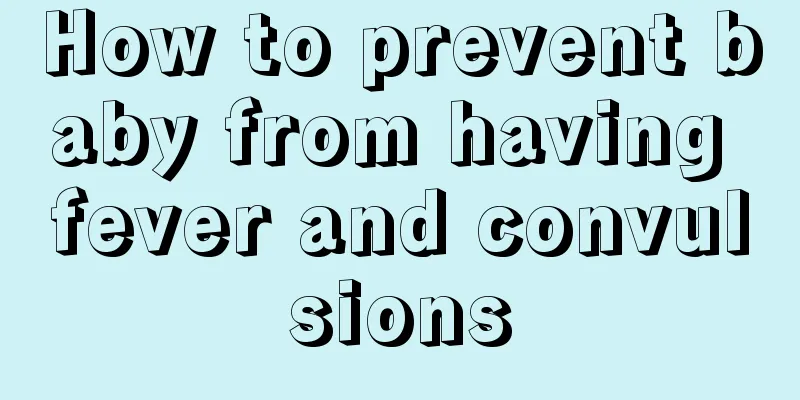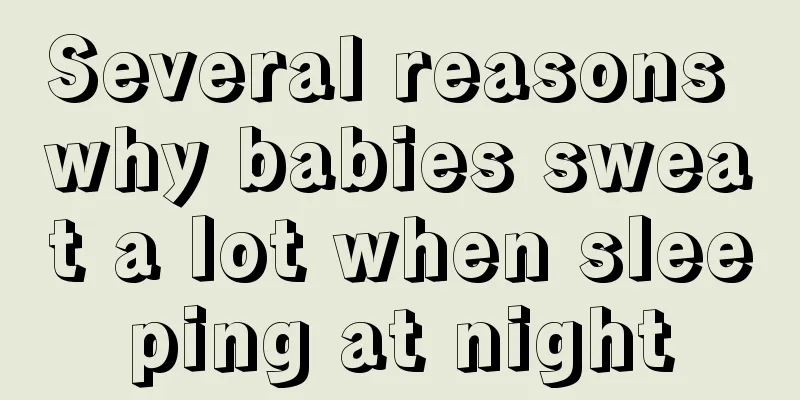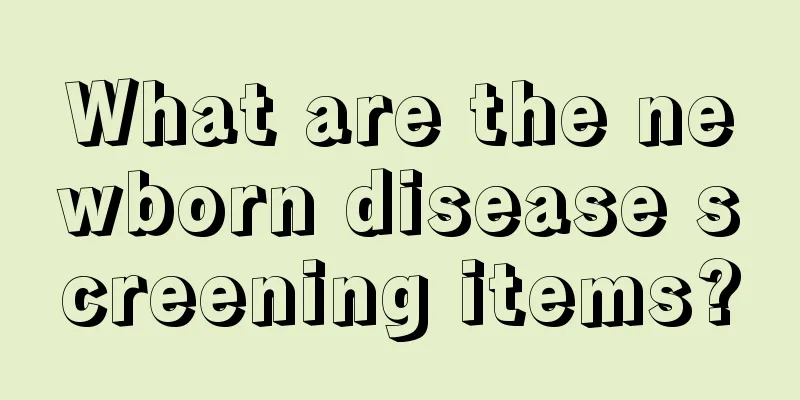What causes congenital heart disease in babies?

|
Congenital heart disease is a relatively common congenital malformation. It may cause complications such as pneumonia and heart failure. Patients with congenital heart disease will have their daily lives affected. For example, they cannot do strenuous physical exercise, which causes the child's immunity to be low, making them more susceptible to colds, fevers, and illnesses. So, what are the factors that cause babies to suffer from congenital heart disease? 1. Environmental factors of fetal development 1. Infection: Babies born during the first three months of pregnancy who have viral or bacterial infections, especially rubella virus, followed by coxsackie virus, have a higher incidence of congenital heart disease. 2. Others: such as amniotic lesions, fetal compression, threatened abortion in early pregnancy, maternal malnutrition, diabetes, phenylketonuria, hypercalcemia, radiation and the use of cytotoxic drugs in early pregnancy, etc., may cause congenital heart disease in the fetus. 2. Genetic Factors Congenital heart disease has a certain degree of familial tendency and may be caused by abnormalities in the parents' germ cells or chromosomes. Genetic studies suggest that most congenital heart diseases are caused by the interaction of multiple genes and environmental factors. 3. Others Some congenital heart diseases are more common in plateau areas, and some congenital heart diseases have significant gender differences in incidence, indicating that the altitude and gender of the birthplace are also related to the occurrence of this disease. Among patients with congenital heart disease, the cause of the disease can be found in very few, but strengthening the health care of pregnant women, especially actively preventing rubella, influenza and other rubella viral diseases in the early stages of pregnancy and avoiding all factors related to the onset of the disease, has a positive significance for preventing congenital heart disease. Some patients can recover on their own before the age of 5, but the chance is relatively small. A reasonable diet is very important for patients. Eat more foods that are good for the heart, such as honey, nuts, black sesame seeds, etc. The heart is our most important organ, so we should pay attention to its health care. Adjust your mentality, maintain a happy mood and a regular schedule, get more rest and do proper exercise. |
<<: What causes congenital amblyopia in children?
>>: How do children eat cheese?
Recommend
Early symptoms of convulsions in children
Unlike adults, children's organs are not full...
Causes of fever in newborns
Newborns are not fully developed and their body f...
How long does it usually take for children to take zinc supplements?
If an adult's body lacks some trace elements,...
What's a good solution for headaches?
Headaches not only occur in adults, but children ...
What medicine should children take for ear pain
Children are the flowers of the future of the mot...
Newborn baby belly button bleeding
If a newborn baby has bleeding in the navel half ...
What should I do if my five-month-old baby has a lot of eye mucus?
Eye boogers appear at the corners of the eyes aft...
How do adolescent children grow taller?
Many adolescent children fail to reach the height...
What should I do if my child has lymph nodes on his head?
The structure of the human body is quite complex,...
Treatment of torticollis in children
Torticollis in children takes a longer time to be...
What are the symptoms of internal heat in children?
From a clinical perspective, the most obvious sym...
How to train your baby to lift his head
Lifting the head is an ability that babies need t...
What should we do if we have pericarditis in children?
Expectant mothers will pay special attention to t...
How much does a baby grow each month after one year old?
After one year old, the growth and development of...
Lymph nodes behind the ears
Nowadays, many parents are more concerned about t...









